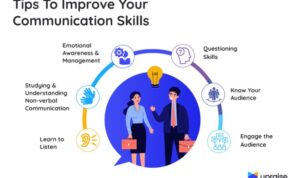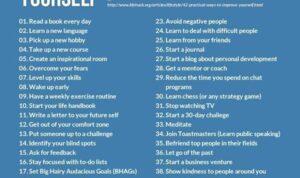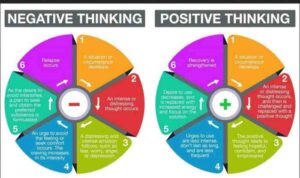Effective Communication Skills sets the stage for this enthralling narrative, offering readers a glimpse into a story that is rich in detail with american high school hip style and brimming with originality from the outset.
Communication is key in all aspects of life, whether it’s building relationships or excelling in the workplace. Mastering the art of effective communication can open doors and create opportunities you never thought possible.
Importance of Effective Communication Skills
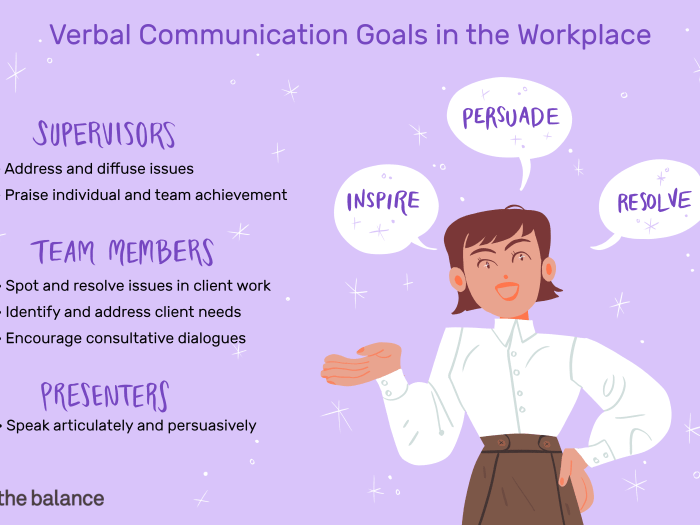
Effective communication skills are essential in both personal and professional settings as they play a crucial role in building strong relationships and fostering a positive work environment. Good communication skills can lead to better understanding, increased productivity, and overall success.
Positive Impact of Good Communication Skills
- Improved Relationships: Clear and effective communication helps in resolving conflicts, building trust, and strengthening relationships with others.
- Increased Productivity: When individuals can communicate their ideas and tasks clearly, it leads to better collaboration and efficiency in completing projects.
- Enhanced Leadership: Strong communication skills are a key attribute of effective leaders who can inspire and motivate their teams towards common goals.
Consequences of Poor Communication Skills
- Conflict and Misunderstandings: Lack of clear communication can lead to misunderstandings, conflicts, and unnecessary tension in both personal and professional relationships.
- Decreased Productivity: Poor communication can result in delays, mistakes, and inefficiencies that hinder progress and impact the overall success of projects.
- Negative Reputation: Individuals with poor communication skills may be perceived as unreliable, unprofessional, or difficult to work with, affecting their reputation and opportunities for growth.
Components of Effective Communication Skills
Effective communication involves various key components that contribute to successful interactions and relationships. These components help individuals convey their messages clearly and understand others better, promoting mutual understanding and collaboration.
Active Listening
Active listening is a crucial component of effective communication. It involves fully concentrating on what is being said, understanding the message, and responding thoughtfully. Active listening shows respect, builds trust, and enhances the quality of communication.
Clarity
Clarity in communication ensures that the message is easily understood by the recipient. Using clear and concise language, avoiding jargon, and organizing thoughts coherently contribute to effective communication. Clarity helps prevent misunderstandings and promotes effective information exchange.
Empathy
Empathy plays a significant role in effective communication by allowing individuals to understand and relate to others’ emotions and perspectives. Showing empathy fosters trust, strengthens relationships, and promotes a supportive communication environment.
Non-verbal Communication
Non-verbal communication, including gestures, facial expressions, posture, and tone of voice, complements verbal messages. It plays a crucial role in conveying emotions, intentions, and attitudes. Being aware of non-verbal cues and using them effectively enhances the overall impact of communication.
Feedback, Effective Communication Skills
Feedback is essential for improving communication skills. Constructive feedback provides valuable insights into one’s communication style, helping identify strengths and areas for development. Incorporating feedback from others facilitates continuous growth and refinement of communication skills.
Developing Effective Communication Skills
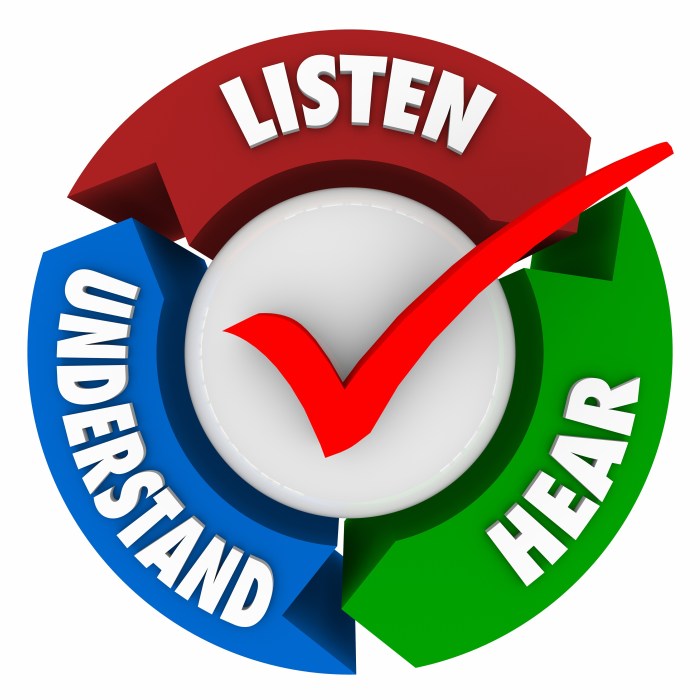
Effective communication skills are essential in all aspects of life, whether it’s in school, at work, or in relationships. Developing these skills takes practice and dedication, but the payoff is worth it. Here are some strategies to help you improve your communication skills:
Improving Active Listening Skills
Active listening is a crucial part of effective communication. It involves fully concentrating, understanding, responding, and remembering what is being said. Here are some tips to improve your active listening skills:
- Give the speaker your full attention by maintaining eye contact and avoiding distractions.
- Show that you are listening by nodding, making verbal affirmations, and asking clarifying questions.
- Paraphrase what the speaker has said to ensure you understand their message correctly.
- Avoid interrupting the speaker and wait for them to finish before responding.
Enhancing Verbal Communication Skills
Verbal communication is another crucial aspect of effective communication. To enhance your verbal communication skills, consider the following tips:
- Speak clearly and concisely to ensure your message is easily understood.
- Use appropriate tone and volume to convey your message effectively.
- Practice good nonverbal communication, such as maintaining good posture and using gestures to emphasize your points.
- Be mindful of your body language and facial expressions to ensure they align with your message.
Improving Written Communication Skills
Written communication is just as important as verbal communication, especially in today’s digital age. Here are some ways to improve your written communication skills:
- Pay attention to grammar, punctuation, and spelling to ensure your writing is clear and professional.
- Consider the tone of your writing and adapt it to suit your audience and purpose.
- Organize your thoughts logically and use proper formatting to make your writing easy to read.
- Proofread your work before sending it out to catch any errors and ensure clarity.
Overcoming Communication Barriers
Communication barriers can hinder effective interactions between individuals, but there are ways to overcome them and ensure clear and efficient communication.
Identifying Common Barriers
Some common barriers to effective communication include:
- Language differences: Use simple and clear language to ensure understanding.
- Physical barriers: Remove distractions and maintain eye contact to enhance communication.
- Emotional barriers: Practice active listening and empathy to address emotional hindrances.
- Cultural differences: Respect cultural norms and be open to learning about different perspectives.
Understanding Cultural Differences
Cultural differences can significantly impact communication. It is essential to:
- Be aware of cultural norms and practices to avoid misunderstandings.
- Respect diverse perspectives and be open-minded in cross-cultural interactions.
Strategies for Dealing with Conflicts
Conflicts arising from communication misunderstandings can be managed through:
- Active listening: Pay attention to the speaker’s message to prevent conflicts.
- Clarification: Ask questions to ensure mutual understanding and clarify any misconceptions.
- Empathy: Put yourself in the other person’s shoes to understand their viewpoint and resolve conflicts peacefully.







